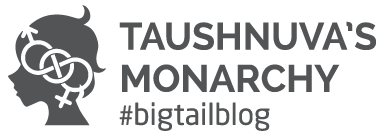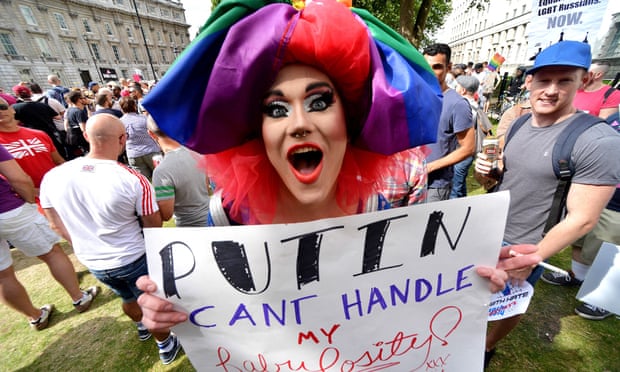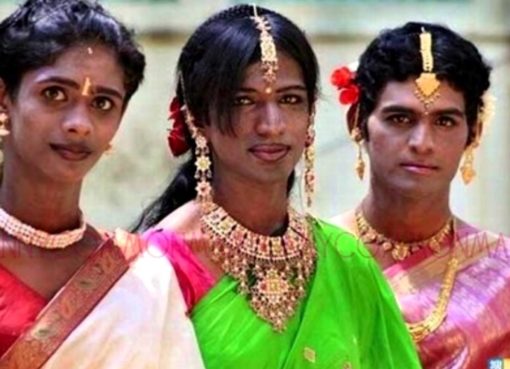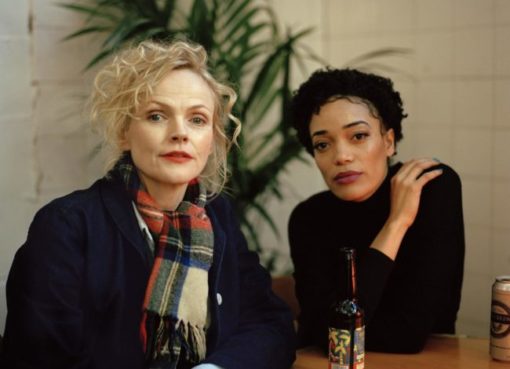We asked our readers to tell us what it’s like being lesbian, gay, bisexual and transgender where they live. From experiences with discrimination to the progress their country has made, here are some of the stories shared with GuardianWitness. Check out our LGBT rights interactive
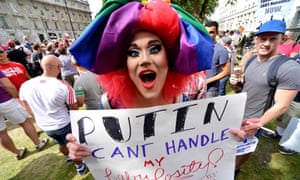
Ahead of the International day against homophobia and transphobia on 17 May, we asked our readers what it’s like to be LGBT in their country.
More than 100 submissions were sent via GuardianWitness from all over the world. From Japan to Russia and Germany to Bangladesh, here are some of the stories we received.
Bangladesh
A country where the predominant religions say you are a sinner, the law of the land says you are a criminal, the social norms say you are a pervert, the culture considers you as imported; how should life be for LGBTs in Bangladesh?
I call it living in a ‘comfortable closet’. Comfortable because it is actually ‘easy’ when it comes ‘doing it’; the culture and social norms are so focused on preventing heterosexual acts between unmarried couples that man-to-man or woman-to-woman sexual acts go almost unnoticed. Even in some more conservative regions homosexual act between teenage boys is seen as the ‘safer’ way of exploring sexuality; so long they get married at their adulthood, no one cares much.
But it’s a closet! The moment someone decides to leave that they’ll face ‘death’, they fear. When the country’s first magazine on lgbt issues, Roopbaan, was published, so harsh was the reaction from the majority.
When a group organised a rainbow rally on the first day of Bengali New Year as part of the bigger New Year’s rally, it was highly applauded by the crowd as no LGBT banner or label was used. But the moment an online news portal tagged this as ‘pride rally by homosexuals’ and Roopbaan as its organiser, the public reaction went brutal.
But things are changing; very slowly but steadily. Amidst that darkness of hatred and threats there’s a silver lining like support from various human rights groups and individuals. Online activism among the LGBT community is rising sharply with a steady offline/community movement by organisations like the Bandhu Social Welfare Society and Boys of Bangladesh. The government has very recently recognised ‘hijras’ as a new gender.
In a country where the whole concept of sex and sexuality is a taboo, we are learning to navigate our ways by highlighting ‘love’ as the center of all, as a human right that can’t be denied, hoping for better, and may be ‘faster’, acceptance.. some day!
Germany
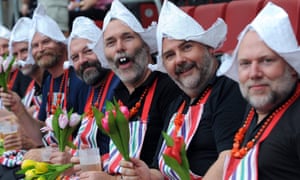
Penal code § 175, outlawing gay sex, was of course abolished decades ago, we have openly gay foreign ministers and other openly lesbian and gay politicians – and it’s been legal now to “marry” your partner by committing to a civil union (without some rights like the right to adoption as a couple etc.). But recent homophobic attacks against Baden-Württemberg’s proposed new school curriculum that includes the teaching of sexual diversity shows there’s lots of resentment under the surface.
Of course, compared to having to fear for one’s personal safety on a daily basis, things in Germany are pretty good. Nonetheless I find it annoying to have people take for granted that I have a husband just because I’m a woman. And it’s not just annoying but sad that in smaller German towns, gays and lesbians are practically invisible and are too afraid to be recognised by neighbours or bosses to join a gay parade, if there is one in the first place. I feel it is altogether tragic and shocking to hear, after having moved to a different town, that a young lesbian acquaintance of mine — one of those who did not join the parade — has committed suicide.
So, on the surface lots of rainbow colours, but it’s still pretty dark underneath.
Japan
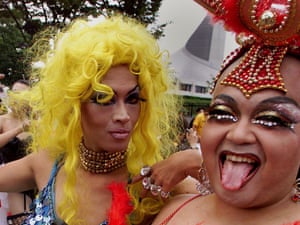
Growing up in liberal, multi-cultural central Manchester, coming out barely raised an eyebrow. Naively, when I moved to Japan to live near Osaka, I assumed it would be equally tolerant, if not as open. After all, Japan was open to all kinds of subcultures right? All my Japanese friends and students had been utterly blase as well when I told them, which I took as indicative of general opinions.
It was in our welcoming seminars when the Japan Stonewall representative warned us that coming out to our offices could potentially result in immediate termination of our contracts as their is no anti-discrimination legislation that it began to dawn on me that maybe it was going to be all rainbows and sakura from here on in. In Japan, attitudes vary depending on location. In metropolitan and international Kansai the response is usually one of surprise and shock, rather than outright hostility; friends living in the 田舎 (inaka, countryside or the sticks), have been far less lucky.
A strong streak of social conservatism runs through Japan. The major opposition to homosexuality (and lesbians in particular) is not so much that it is seen as `wrong` or `sinful` – Japan is a very secular country as a general rule- and more that it is just `different`. The overwhelming assumption of my female students (and male ones to a lesser degree) is that they will marry, have children, give up work to be a 主婦 (shufu, housewife) etc, etc. Any lifestyle which shows potential deviation from that strict model is frowned upon- and no-one considers that gay people may aspire to this very model of matrimony and normalacy.
I am comparatively lucky as there are two (TWO!) lesbian bars in the whole of Osaka, and another couple in Kyoto about an hour away. They are small, poky places with no identifying marks. The majority of Japanese queer women I have met are very firmly closeted, only one or two coming out to family members who respond with disapproval although not usually outight rejection. Another difference is that Japanese queer women clearly define themselves as `boi`s` or `femmes`, and partner up accordingly. If you don`t clearly delineate, like myself, you are met with bemusement. Gendered roles are still pretty reinforced on the LGBT scene.
Its not all doom and gloom though. Although gay `scenes` tend to be limited just to Osaka and Tokyo, the local clientele are always welcoing. Queer foreigners also tend to band together and lots of events are organised through Stonewall Japan and others. I came out at my office and although people were surprised (`but you have long hair!`), they adjusted pretty quickly. I’ve had responses from students, friends and colleagues ranging from `here, we think its a disease` (in a very helpful informative tone!) to `so what, its 2014`, Most of the stigma is bound up with rigid conceptions of gender roles, which is very gradually changing. Overall, Japan sees itself as a welcoming and kind society, so even if people are more embarassed than supportive, you are very unlikely to face any overt discrimination (well, that would be rude…).
Also, of all the shiniest of silver linings, there is the Takarazuka Revue. Case closed.
UK

Social attitudes have improved dramatically in the past decade, thanks to activism from the transgender community and growing understanding and acceptance from the younger generations; aided enormously by the web, and social media sites.
I am fortunate to live in country that has some legal protections for the transgender community especially, as harassment, violence and threatening behaviour are still all too common: with the hardest impact falling on those from poorer backgrounds and women from ethnic minorities in this country.
Casual social discrimination continues to set us back even when there is a measure of tolerance, and still closely impacts our careers and personal lives: everything from finding a flat, to finding and maintaining relationships. All the more when we exist at the intersection of socially marginalised groups.
Even with the privilege of my features and an excellent college education, I am caught on minimum wage, my degree shot to pieces dealing with mental health issues. My family is tolerant but not especially accepting, and I am fortunate even for that. I have met trans women who are thriving in spite of everything, but many who continue to struggle on multiple fronts, none of this helped by the current governments’ attitude to social support and benefits.
All this, and I live in London. The oppression transgender women, women of colour, face worldwide is shocking and heartbreaking.
Botswana
Dumiso Gatsha sent us this overview of life as a member of the LGBT community from Gaborone in Botswana.
Northern Ireland
I grew up in a very homophobic atmosphere in Northern Ireland, regular bullying, homophobic language and violence and no positive gay role models, gay life was hidden and not discussed. That was the 1980s.
Although I now live in London, like the rest of the UK, Northern Ireland has seen some amazing changes in 30 years which mean its much easier to be out, especially with family and friends. My experience is that day to day, and as individuals most Northern Irish people aren’t homophobic anymore but it lags behind the rest of the UK in laws and the political culture is far from tolerant.
Like in other parts of the world affected by political homophobia there is a strong link to conservative religious groups and tribal politicians, who fight any positive move made for gay people as a way of motivating their core votes and followers.
Although living in London life is very free and beautiful I’m always conscious of how just 500 miles away a very different less progressive culture still exists and that for any minority group, hard won freedoms are often easily reversed. Even in London we shouldn’t think battles have been won forever.
Mexico City
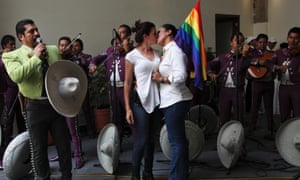
I moved to Mexico City in November 2000 from Australia to live with my gay Mexican partner. It’s been 14 years and I have never regretted a day. Mexico City is the capital of gay culture in Mexcio, attracting LGBT people from other parts of Mexico and Latin America.
There is a generational problem that I have seen, regarding being “out”. Mexico City was a very conservative and homophobic place. This led to social and family pressure on gay men to establish a family, and therefore stay well and truly closeted. There are different bars in the city where older men meet and socialise in a gay setting. They then return to their wives and children. However, things have changed in many ways.
Although discrimination exists and violence is not unheard of, in Mexico City there seems to be less pull from the Catholic Church than other parts of Mexico. As a result, many people tend to be ambivalent about same sex or transgendered issues. They know what is going on but pretend that it doesn’t exist. If there are gatherings of family, partners often attend. The partner, however, is introduced as a ‘friend’, but everyone knows that they are in a relationship.
As in every society young people tend to be pushing the boundaries. Younger people just don’t see it as a problem. There is still a very lively gay scene, but when you venture into different bars there are many places where everyone is mixing, and not even considering sexuality as an issue.
One thing that has advanced life for LGBT people in Mexico City was the passing of laws to legalise gay marriage. Before the legislation was voted on, there was a mammoth struggle between the centre left local government and the catholic church. The law was important because it was the first time in Mexico that LGBT rights had been legally backed. There are still problems with Federal Government institutions accepting LGBT spouses, and Mexico City laws have had to be backed by the Supreme Court, but conservatives in Mexico have discovered that once a law is in place it is very hard to get rid of.
One very strange thing for my partner and I is that we have not taken advantage of the laws, and remain unmarried. I would like to.
Russia
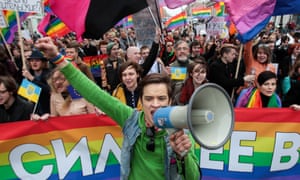
We, Russians, are a pretty cold and closed people. Showing affections in public is something considered inappropriate even for your old heterosexual couples. And introducing same-sex unions is really unimaginable in this realm of stagnated conservatism.
People are scared to come out for various reasons starting from fear not to be understood by their own families (and maybe even disowned by them) and ending with a well-grounded caution for their jobs. The only remedy here is to stay quiet and keep one’s own preferences to oneself. As even the “great and powerful” Russian language is likely turn against one as there is a wild range of insults based on abusing one’s sexuality. Actually calling someone gay is one of the easiest ways to show a person’s disregard and extreme contempt.
At the same time it is not that LGBT don’t exist. The clubs are there even if it is difficult to get inside if you don’t know where exactly the door is. And there are proud gay people walking hand in hand even when suffering from the necessity of hiding in the closet and secretly planning an immigration to some more tolerant and happy place.
Actually in this land of thriving inequality it is still relatively easy to exist if one is prepared to keep one’s mouth shut. And that is probably the key-point of the our most infamous “gay-propaganda” law.

